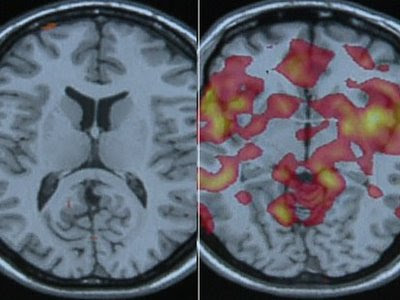Brain scans used as evidence in US murder sentencing
Illinois convict’s brain disorder affects sentencing process
 Brain scans have been used, perhaps for the
Brain scans have been used, perhaps for the
first time in the US, as evidence in the sentencing stage of a murder trial. The defence
for an Illinois
man convicted of the rape and murder of a 10-year-old girl has used fMRI scans
to argue that he should not be given the death penalty because of a brain
disorder.
Brian Dugan pleaded guilty in July although the crime happened in 1983. Prosecutors
sought the death penalty even though Dugan was already
serving two life sentences for two other murders.
The defence argued that Dugan’s psychopathy should be treated as a mitigating factor as it
impaired his ability to control his behaviour. A University of Mexico at Albuquerque
neuroscientist, Kent Kiehl, said that Dugan exhibited a plethora of the
characteristics associated with psychopathy, including impulsivity, lack of
remorse, antisocial behaviour, and that in a diagnostic checklist for
psychopathy, Dugan scored 37 out of 40 points, placing him in the 99.5th
percentile.
Kiehl served as an expert witness to the defence, testifying
that Dugan displayed characteristics similar to those he and others had
observed in other psychopaths. However, Kiehl did not state that Dugan
committed the crimes as a result of the brain abnormality. Kiehl said that
“It’s just one piece of evidence that his brain is different.”
A New York
University psychiatrist,
Jonathan Brodie, conversely testified for the prosecution, stating that “I
said the scans are of wonderful technical quality, but so what? They’re not
relevant here. Using an fMRI scan done in September of 2009… to indicate
a thought process that was going on in 1983 could hardly be more silly.”
Steve
Greenberg, the lead defence lawyer, said that a 10-hour deliberation by
the jury shows that the fMRI scans were at least influential
in reaching a verdict in this particular case. “This guy was guilty of
raping and killing little
girls,” said Greenberg. “Without the brain imaging stuff the jury
would have been back in an hour.” ~ Science,
Nov 23
Jared Yee
brain scans
neuroethics
- Queensland legalises ‘assisted dying’ - September 19, 2021
- Is abortion a global public health emergency? - April 11, 2021
- Dutch doctors cleared to euthanise dementia patients who have advance directives - November 22, 2020
